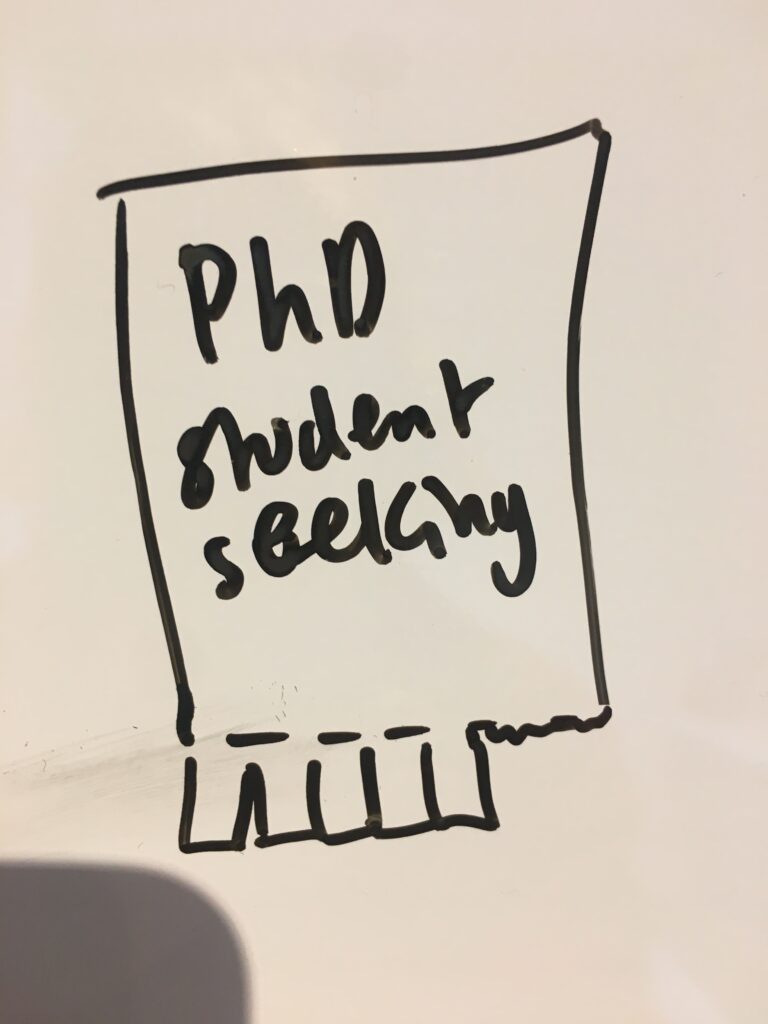In an attempt to create order in the chaos of my mind I thought that it would be helpful to also write all the ideas I have thoughout this process alongside all the questions, insights I have.
The Shelter for Phantom Voices
This idea came to me while I was doing a podcasting workshop (26/04/21 – 27/04/21). Combining the Last Archive podcast and the book Imaginary Museum and then ripping them off, I decided to make the Shelter for Phantom Voices: home of oral history. I thought it would be a good idea to used different oral history projects to illustrate the various challenges and opportunities that can be found in the field of oral history.
I don’t know whether I’ll make it into a podcast or just keep it as a mind palace for myself but either way it is a fun way to think about it.
Pop-Up Archive
I was zooming with Emma because we need our bi-weekly PhD vent. She had been busy with ethics forms which was driving her crazy and I had been thinking about reusing archives (duh). This combination led us to brain storm how you can make an archive pandemic and power-cut proof, while also sticking to GDPR regulations. Our conclusion, a pop-up archive where you can simply hear the oral histories live from the people without any recording. You see if there isn’t a document you do not need to worry about GDPR, power cuts or pandemics because the archive lives within the people. Inspired by oral tradition of Anansi the histories live within the generations through pop up archives. No collection, no storage problems.
PhD student seeking…

Since my roots lie with fine art and I am a strong believer in art as a frontier of exploration, I find it fitting that I should start this project with some type of collaboration with art students. I imagine this would involve me commissioning artists to create pieces that explore the ideas of: sustainability, audience participation, legacy, evolution, story telling, manipulation etc. Should be fun.
Continuing this idea but expanding it to software developers and architects.
The diverse feminist experience
I am currently (21/07/20) watching the drama series Mrs. America, which is about the ERA (equal right amendment) in 1970s America and the women who are both for and against it. The drama demonstrates perfectly how difficult it is for feminist unity because everyone has different life experiences. Women of colour have a different story to white women, young and old differ, lesbians and straights, rich and poor. It is a mess and the exact reason that when my brother asks why can’t women do what #blacklivesmatter protesters do, I reply with it’s just too complicated.
However what this particular situation offers is an extreme situation and extreme situations are very helpful in the case of designing something (Tim Brown, Change by Design). With this in mind I believe that an experiment involving the various opinions of a diverse group on the topic of feminism could provide an exceptional interesting source of footage. Something that could possibly be edited to fit any point of view.
I therefore imagine collecting this in a Photo Booth set up on, lets say, the university grounds and then later inviting people to create their own interpretation of the footage.
I think the aim of the experiment would be to see if you can edit any footage to fit your opinion even if you have collected a wide range of opinions.
Alternatively…
I could make a set up where you can answer a question and leave a question. Like a chain of opinions. Completely random. Could be a website or an installation of some kind.
